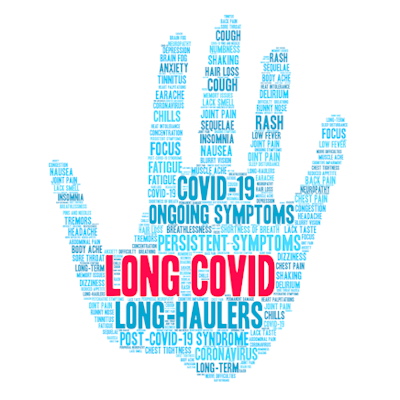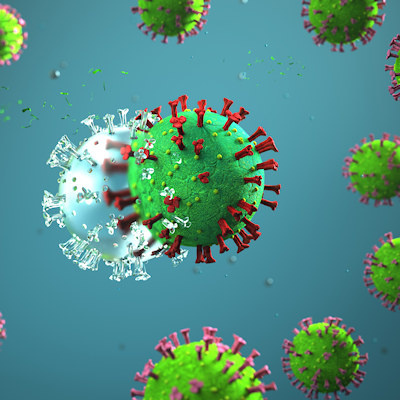June 7, 2023 -- Fatigue is the most impactful symptom in the lives of people suffering from long COVID, with patients reporting worse scores than individuals with some cancers.
The findings come from a study of more than 3,750 patients who were referred to a long COVID clinic in England and used a digital app as part of their treatment for the condition. As the study published in the journal BMJ Open explains, participants used the app to complete questionnaires about the impact of long COVID on their lives. The questions covered day-to-day activities, levels of fatigue, depression, anxiety, breathlessness, brain fog, and their quality of life.
Based on the responses, the researchers concluded that many long COVID patients are seriously ill. The average fatigue scores were worse or similar to those of people with cancer-related anemia or severe kidney disease. Equally, the health-related quality of life scores was lower than those of people with advanced metastatic cancers, and the impact of the condition on daily activities was worse than that of stroke patients and comparable to the responses of people with Parkinson's disease.
The press release shared under embargo before the publication of the paper lacks information about the sources of the data on patients with conditions other than long COVID. Comparing results collected in different studies can lead to unreliable conclusions because factors such as differences in the design of the research can affect outcomes.
Even so, it is clear from the long-COVID data that the condition is significantly affecting lives. Half of the participants in the study were unable to work for at least one day in the month prior to providing their responses. One-fifth of the respondents were unable to work at all. All of the participants had suffered symptoms in keeping with long COVID for at least 12 weeks after an acute infection.
The study marks the first assessment of the impact of long COVID on the day-to-day functioning and health-related quality of life of patients referred for specialist rehabilitation in English long Covid clinics. Henry Goodfellow, a doctor at the UCL Institute of Epidemiology & Health who co-led the study, outlined the implications of the research in a statement.
"Our findings show that fatigue should be an important focus for clinical care and the design of rehabilitation services," Goodfellow said. "Post-COVID assessment services should consider focusing on assessing and treating fatigue to maximize the recovery and return to work for sufferers of long COVID."
The focus on fatigue aligns with the findings of a recent study backed by the U.S. National Institutes of Health (NIH). That study found debilitating post-exertional fatigue affects most people with long COVID.
Copyright © 2023 scienceboard.net







